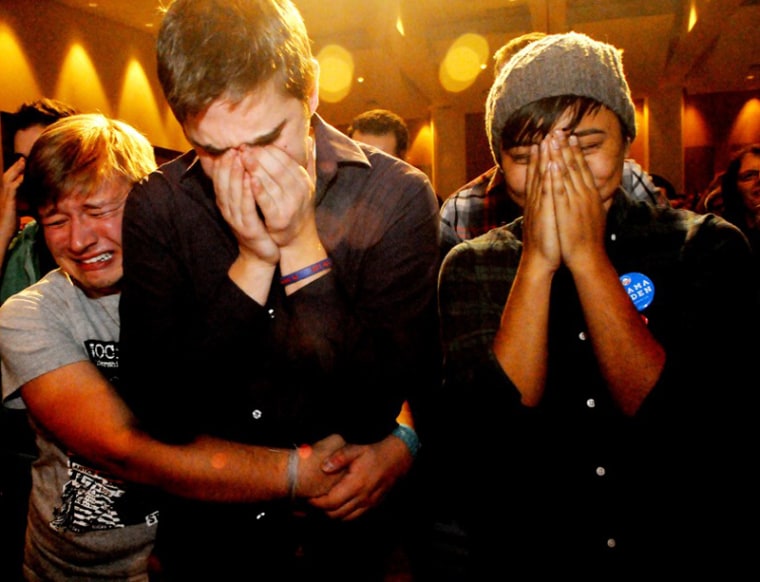They told us this day would never come.
“Not in America,” they said.
They were wrong.
Tuesday night, voters in Maine, Maryland (and possibly Washington) approved ballot questions legalizing same-sex marriage. In Minnesota, voters—after an 18-month campaign—brought down a proposed constitutional amendment to ban same-sex marriage.
This is just the beginning.
In Iowa, where same-sex marriage has been legal since 2009, voters retained an Iowa Supreme Court Justice in a race that was heralded (including by yours truly) as a proxy vote on same-sex marriage. The justice was retained by a near 10-point margin. Further, Iowa Democrats actually increased their majority in the Iowa Senate after blocking a constitutional amendment against same-sex marriage in early 2011.
It is difficult, even amid the elation many of us feel this morning, to overstate how important this is. As we’ve now seen in Minnesota—a solid blue state when it comes to presidential elections, but known to be otherwise socially moderate—along with the victory in Iowa and south of Mason-Dixon line Maryland is no one-off fluke: the legalization of same-sex marriage is now a socially moderate position.
This is the triumph of progress.
There have always been two visions of this country. One of them is rooted in our Puritan past. It is suspicious of freedom, skeptical of reason and hostile to change. The other is rooted in our founding revolution. It celebrates freedom, embraces reason and welcomes change. Last night was a celebration of—and recommitment to—that vision.
To answer your question, Sarah, yes that hope-and-change thing is working out quite well, thank you.
Buried in the election data, you’ll see that the electorate in 2012 was younger than in 2008. Those of us under the age of 25 made up 11% of the electorate this year. To underscore this, too, you need to know that a record 82% of registered voters turned out to vote this year.
So in a year when a record number of Americans turned out to the polls, young people still outperformed 2008. It’s been trendy over the last four years to say that the Millennials are disillusioned, jaded, and apathetic. Turns out we’re more resilient than the gray hairs want to give us credit for. As we start to undo constitutional amendments banning same-sex marriage all over the country, young voters will be an absolutely critical demographic.
It’s a good day to be an American.
